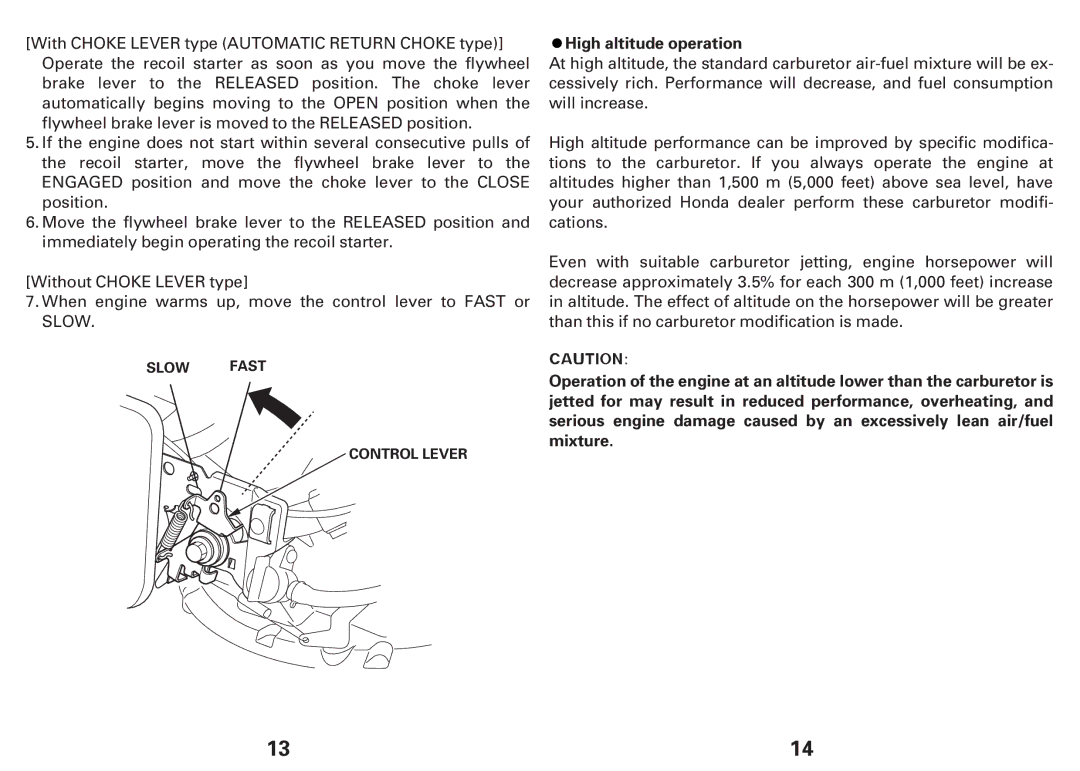GCV160E, GCV135E specifications
Honda Power Equipment has carved a reputation for reliability and innovation, and its GCV135E and GCV160E engines exemplify this legacy. These units are designed to provide superior performance and efficiency for a variety of outdoor applications, from lawn mowers and trimmers to generators and pressure washers. Their advanced features position them as excellent choices for both commercial use and home gardening enthusiasts.One of the standout characteristics of the GCV135E and GCV160E engines is their four-stroke design, which promotes cleaner emissions compared to two-stroke engines. This not only makes them environmentally friendly but also allows for quieter operation, ensuring that users can work in their yards without disturbing the neighborhood. Both engines are engineered for easy starting, often featuring Honda's reliable automatic decompression system that reduces resistance in the starting mechanism, allowing for a simple pull-start operation.
The GCV135E boasts a displacement of 135cc, while the GCV160E is slightly larger at 160cc. This difference in size translates to variations in power output, making the GCV160E a preferable option for tasks requiring more torque and horsepower. Both engines deliver strong performance with high fuel efficiency, making them economical choices for regular use. The included fuel shutoff valve also enhances longevity by preventing stale fuel issues during long periods of inactivity.
In addition to power and efficiency, Honda incorporates advanced technologies into these engines. The "Eco-Throttle" system optimizes engine speed based on the workload, which not only enhances fuel efficiency but also reduces noise levels, extending the life of the engine. On the maintenance side, the GCV135E and GCV160E feature an innovative design that allows for easier access to components, making oil changes and other routine maintenance simple for users.
Durability is another key feature of these Honda engines. Constructed with robust materials and an integrated protective cover, they are designed to withstand the rigors of outdoor use. The engines are also equipped with a built-in air cleaner, which helps protect against dust and debris, ensuring long-term performance in varying conditions.
In summary, Honda's GCV135E and GCV160E engines offer exceptional performance, efficiency, and durability. With their advanced technology and user-friendly features, they provide a reliable solution for homeowners and professionals alike, ensuring that outdoor tasks are completed smoothly and efficiently. Whether you're mowing the lawn or operating heavy equipment, these engines promise to deliver power you can trust.

